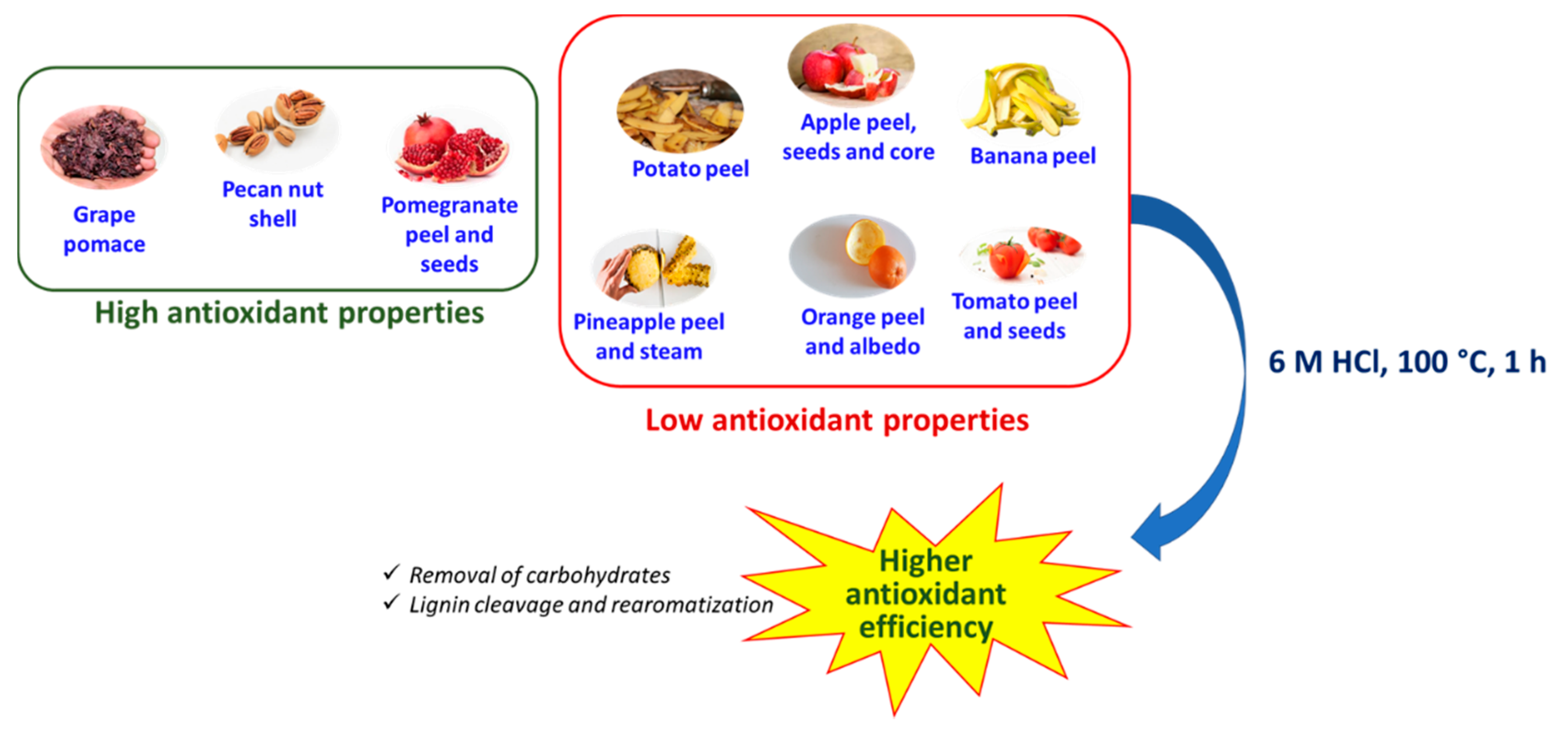Vitamin C, also known as ascorbic acid, is a vital nutrient that plays a significant role in maintaining optimal health. One of its remarkable benefits lies in its ability to reduce oxidative stress and inflammation in the body. Oxidative stress, caused by an imbalance between free radicals and the body's antioxidant defenses, can lead to cellular damage and contribute to the development of various diseases. Likewise, chronic inflammation is associated with a range of health conditions, including cardiovascular diseases, diabetes, and certain cancers. In this article, we will explore the top five helpful pieces of information about the impact of vitamin C on reducing oxidative stress and inflammation.
1, Antioxidant properties.
Vitamin C is indeed a powerful antioxidant that plays a crucial role in reducing oxidative stress in the body. Let's break down the statement further:
Oxidative Stress: Oxidative stress refers to an imbalance between the production of free radicals and the body's ability to counteract their harmful effects. Free radicals are highly reactive molecules that can damage cells and contribute to various health problems, including chronic inflammation, aging, and certain diseases.
Antioxidants: Antioxidants are substances that can neutralize free radicals by donating an electron, thereby stabilizing them and preventing them from causing damage to cells. They help maintain the balance between free radicals and antioxidants in the body.
Vitamin C as an Antioxidant: Vitamin C, also known as ascorbic acid, is a water-soluble vitamin and a potent antioxidant. It readily donates electrons to neutralize free radicals, converting them into more stable forms. This property allows vitamin C to protect cells and tissues from oxidative damage caused by free radicals.
Protection against Damage: By scavenging free radicals, vitamin C helps protect cells and tissues from oxidative stress-related damage. This can be particularly important in combating inflammation, as oxidative stress often accompanies inflammatory processes in the body. By reducing oxidative stress, vitamin C supports overall cellular health and contributes to the maintenance of healthy tissues.
It's worth noting that apart from its antioxidant properties, vitamin C has numerous other roles in the body, including collagen synthesis, immune function support, and enhancing the absorption of iron from plant-based sources. Therefore, consuming an adequate amount of vitamin C-rich foods or considering supplements can be beneficial for overall health and well-being.
2, Inflammation reduction.
Vitamin C has been recognized for its potential anti-inflammatory properties, which can contribute to the reduction of chronic inflammation. Here's a breakdown of the statement:
Chronic Inflammation: Chronic inflammation is a prolonged and persistent inflammatory response that can occur in various tissues and organs throughout the body. It is associated with several diseases, including cardiovascular diseases, diabetes, certain types of cancer, and autoimmune disorders.
Anti-Inflammatory Properties: Vitamin C has been found to possess anti-inflammatory properties. It can modulate the immune response and help maintain a balanced inflammatory state in the body.
Inhibition of Pro-Inflammatory Molecules: Vitamin C can inhibit the production of pro-inflammatory molecules, such as cytokines, chemokines, and prostaglandins. These molecules play a role in promoting inflammation and contribute to tissue damage and disease progression.
Support for Anti-Inflammatory Molecules: Vitamin C also supports the production of anti-inflammatory molecules, such as interleukin-10 (IL-10), which help counteract the inflammatory response. By promoting the production of these molecules, vitamin C helps maintain a balanced immune response and reduce excessive inflammation.
Overall Impact: By reducing chronic inflammation, vitamin C may have a positive impact on various diseases and conditions linked to inflammation. However, it's important to note that while vitamin C can be beneficial, it is just one component of a comprehensive approach to managing inflammation and associated health issues. A healthy lifestyle, including a balanced diet, regular exercise, stress management, and appropriate medical care, are also important factors to consider.
It's worth mentioning that the exact mechanisms of vitamin C's anti-inflammatory effects are still being researched, and the optimal dosage and individual responses may vary. Therefore, it's recommended to consult with a healthcare professional for personalized advice and guidance regarding vitamin C supplementation or dietary choices for addressing inflammation-related concerns.
3, Collagen synthesis.
Vitamin C is essential for collagen synthesis, which is vital for maintaining the structural integrity and strength of various tissues in the body. Here's a breakdown of the statement:
Collagen: Collagen is the most abundant protein in the body and is a key component of connective tissues, including skin, bones, tendons, ligaments, and blood vessels. It provides strength, structure, and elasticity to these tissues, contributing to their proper function.
Role of Vitamin C: Vitamin C plays a crucial role in the synthesis of collagen. It is involved in several steps of collagen formation, including the hydroxylation of proline and lysine amino acids, which are necessary for the proper assembly and stability of collagen molecules.
Tissue Repair and Wound Healing: Collagen synthesis is particularly important for tissue repair and wound healing processes. When tissues are damaged due to injury, surgery, or other causes, collagen production increases to facilitate the regeneration and remodeling of the affected area. Vitamin C supports this process by providing the necessary building blocks for collagen synthesis.
Reduction of Inflammation: Inflammation often accompanies tissue damage and wound healing. By promoting collagen synthesis, vitamin C can aid in tissue repair and help reduce inflammation associated with the healing process. Collagen provides structural support and stability to the newly formed tissue, allowing it to function properly and reducing the likelihood of excessive inflammation.
Skin Health: Collagen is essential for maintaining skin health, elasticity, and a youthful appearance. Adequate vitamin C levels are important for the production of collagen in the skin, contributing to its strength, firmness, and the prevention of wrinkles.
By ensuring an adequate intake of vitamin C through a balanced diet or supplements, you can support collagen synthesis, tissue repair, wound healing, and overall tissue health. It's important to note that other factors, such as a balanced diet with sufficient protein and other nutrients, also play a role in collagen synthesis and tissue health.
4, Immune system support.
Vitamin C plays a crucial role in supporting the immune system and its proper functioning. Here's a breakdown of the statement:
Immune Function: The immune system is responsible for defending the body against pathogens, such as bacteria, viruses, and other harmful microorganisms. It consists of a complex network of cells, tissues, and molecules that work together to identify and eliminate these invaders.
Vitamin C and Immune Cells: Vitamin C supports immune function by enhancing the activity of various immune cells. Neutrophils, natural killer cells, and lymphocytes (including T cells and B cells) are essential components of the immune system that play key roles in identifying and eliminating pathogens.
Neutrophils: Neutrophils are white blood cells that are among the first to arrive at the site of infection. They help engulf and destroy pathogens. Vitamin C has been shown to enhance the function of neutrophils, enabling them to better perform their defensive functions.
Natural Killer Cells: Natural killer (NK) cells are another type of immune cell that play a critical role in recognizing and eliminating infected or abnormal cells, including cancer cells. Vitamin C has been found to support the activity of NK cells, enhancing their ability to target and destroy these harmful cells.
Lymphocytes: Lymphocytes, including T cells and B cells, are key players in adaptive immunity. They are involved in recognizing specific pathogens, coordinating immune responses, and producing antibodies. Vitamin C has been shown to support the proliferation and function of lymphocytes, aiding in the adaptive immune response.
Chronic Infections and Immune Health: By enhancing the activity of immune cells, vitamin C helps strengthen the immune system and reduce the risk of chronic infections. It supports the body's ability to combat pathogens effectively, leading to improved immune health.
It's important to note that while vitamin C can support immune function, it is just one component of a healthy immune system. Maintaining an overall healthy lifestyle, including a balanced diet, regular exercise, adequate sleep, stress management, and other immune-supportive practices, is also essential for optimal immune health.
Additionally, it's worth mentioning that individual immune responses and requirements may vary. It's always a good idea to consult with a healthcare professional for personalized advice regarding vitamin C supplementation or dietary choices to support your immune system.
5, Cardiovascular health.
Vitamin C can have beneficial effects on cardiovascular health due to its antioxidant and anti-inflammatory properties. Here's a breakdown of the statement:
Oxidative Stress and Inflammation: Oxidative stress and inflammation play significant roles in the development of cardiovascular diseases. Oxidative stress refers to an imbalance between the production of harmful free radicals and the body's ability to neutralize them, leading to damage to cells and tissues. Chronic inflammation contributes to the progression of atherosclerosis, the build-up of plaque in the arteries.
Antioxidant Properties: Vitamin C acts as a potent antioxidant, helping to neutralize free radicals and reduce oxidative stress. By scavenging free radicals, it helps protect LDL cholesterol (commonly referred to as "bad" cholesterol) from oxidation. Oxidized LDL cholesterol is more likely to contribute to the formation of arterial plaques, which can restrict blood flow and lead to cardiovascular problems.
Anti-Inflammatory Effects: Vitamin C also exhibits anti-inflammatory properties, helping to reduce chronic inflammation in the arteries. By reducing inflammation, it can inhibit the progression of atherosclerosis and improve cardiovascular health.
Atherosclerosis and Plaque Formation: Atherosclerosis is the process characterized by the build-up of plaques on the inner walls of arteries. These plaques consist of cholesterol, cellular debris, and other substances. Vitamin C's antioxidant and anti-inflammatory actions can help prevent the formation of arterial plaques by reducing oxidative stress and inflammation, thereby reducing the risk of atherosclerosis.
Overall Cardiovascular Health: By protecting against LDL cholesterol oxidation and inhibiting the development of arterial plaques, vitamin C contributes to improved cardiovascular health. It supports the maintenance of healthy blood vessels, proper blood flow, and a reduced risk of cardiovascular diseases, such as heart disease and stroke.
It's important to note that while vitamin C can be beneficial for cardiovascular health, it is just one factor among many that contribute to overall heart health. Other lifestyle factors, such as a balanced diet, regular physical activity, maintaining a healthy weight, not smoking, and managing other cardiovascular risk factors, also play important roles in maintaining cardiovascular health.
If you have specific concerns about your cardiovascular health, it is always recommended to consult with a healthcare professional for personalized advice and guidance.
In conclusion, the impact of vitamin C on reducing oxidative stress and inflammation cannot be understated. As a potent antioxidant, vitamin C scavenges free radicals, protecting cells and tissues from damage. Its anti-inflammatory properties contribute to a balanced immune response, inhibiting the production of pro-inflammatory molecules and promoting the production of anti-inflammatory molecules. Furthermore, vitamin C's role in collagen synthesis aids in tissue repair and wound healing, while its support of the immune system enhances overall immune health. Lastly, its positive influence on cardiovascular health, by preventing LDL cholesterol oxidation and reducing arterial plaque formation, is crucial in maintaining a healthy heart. However, it's important to remember that vitamin C should not be considered a standalone treatment for specific medical conditions, and consulting with a healthcare professional is always recommended for personalized advice and treatment plans. By incorporating vitamin C-rich foods or supplements into our daily routines, we can harness the powerful benefits of this essential nutrient and promote a healthier, more balanced lifestyle.

:max_bytes(150000):strip_icc()/the-fastest-way-to-reduce-inflammation-568c5a81e5d04bc3ae731824499ca4d4.jpg)



Comments
Post a Comment